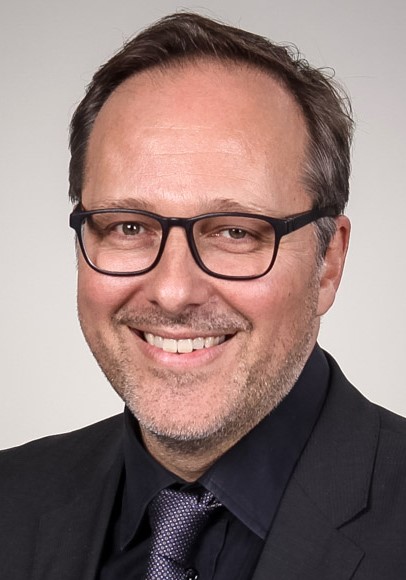
Explore our recent stories to see what drives us
World Hospice Day: Quality of life to the very end

What began in the 1960s as an initiative of the founder of palliative and hospice work, Cicely Saunders, in England, quickly spread to many countries within and outside Europe and set important social and political impulses. In Germany, the hospice movement as a civic movement has also asserted itself against social opposition and has facilitated the provision of hospices, which we take for granted today, as well as the development of palliative medicine. More than 10,000 doctors with the additional title of palliative medicine practice in Germany today, and around 15 percent of our hospitals have palliative care wards. In addition, there is the steadily expanding network of specialised outpatient palliative care. Not all, but a lot of people want to die in dignity at home, and with us they can do so.
However, in terms of palliative care, there are big differences worldwide...
That’s true. While palliative care is generally very good in Europe, North America and Australia, things are quite different in Latin America, Asia or Africa. The legal framework conditions are partly lacking there and the question of financing is often unresolved. But Latin America is the region where palliative care is currently developing the fastest. And, for example, in Uganda, the situation for patients has already improved significantly. In many African countries, however, the lack of access to opioids and morphine is a major issue. Colleagues talk about 'worse than torture' when they describe the cancer pain of patients that they cannot adequately treat. All over the world, a culture-sensitive handling of the taboo topics of death and dying is important.
In your opinion, what are currently the most pressing issues?
Apart from further developing and expanding palliative care worldwide, the psychological support of many terminally ill patients is still insufficient - even in countries that have well-developed palliative care systems. In the case of cancer diagnoses, a psycho-oncologist is usually available right away - unfortunately, this is not always the case when it comes to patients with cardiovascular or neurological diseases. We need to make sure that we build strong networks with psychologists so that all seriously ill people have better access to psychological care.
Many people avoid the topic of palliative medicine. Why should it be important to them nevertheless?
Because it is a topic of increasing importance and there is a growing need. People are getting older and older. Although more of us are growing old while staying healthy, geriatrics and palliative care are the fastest-growing disciplines in medicine. By the way, it is a widespread misconception that palliative care is about terminal care. Rather, our goal is to improve the quality of life of terminally ill people, starting with the diagnosis. We sometimes support patients for many years. So I do not introduce myself by saying "Hello, I'm your doctor for dying," but rather, "Hello, I'm your quality of life physician". This helps a lot to remove the taboo.
What is palliative care?
According to the World Health Organization (WHO), palliative care is an approach to improve the quality of life of patients facing life-threatening illnesses and their families - through the prevention and alleviation of suffering through early detection and proper assessment and treatment of pain and other physical, psychosocial and emotional issues1. Originally developed for cancer patients, the therapy concept, which is based on a holistic approach, not only integrates the medical aspects, but also takes into account mental and psychosocial suffering. Palliative care professionals work in multidisciplinary teams, which include nurses, doctors, social workers, psychologists, counsellors, psychotherapists and physiotherapists2.
The Grünenthal Foundation for Palliative Medicine
Founded in 1998, the Grünenthal Foundation for Palliative Medicine addresses the needs of people with incurable diseases and limited life expectancy, with the aim of preserving the quality of life and dignity of those affected. The foundation's capital enabled the establishment of the Department of Palliative Medicine at the University Hospital in Aachen. With the help of the foundation and supported by a donation of the foundation’s chairman Michael Wirtz, the first university chair for palliative medicine in Germany was established in 2003 at Aachen University. The Grünenthal Foundation for Palliative Medicine also supports initiatives and meetings. Similar foundations have since been established in Spain, Portugal and Ecuador3.

“Palliative care is not terminal care. Rather, it's about quality of life.”
https://www.who.int/cancer/palliative/definition/en/
https://www.dhpv.de/themen_hospiz-palliativ_palliativmedizin.html
http://grunenthalstiftungfuerpalliativmedizin.org/